Tattoo Peeling: Is This Normal And How To Care For It?
Allow successful tattoo peeling to unveil a stunning and vibrant design!
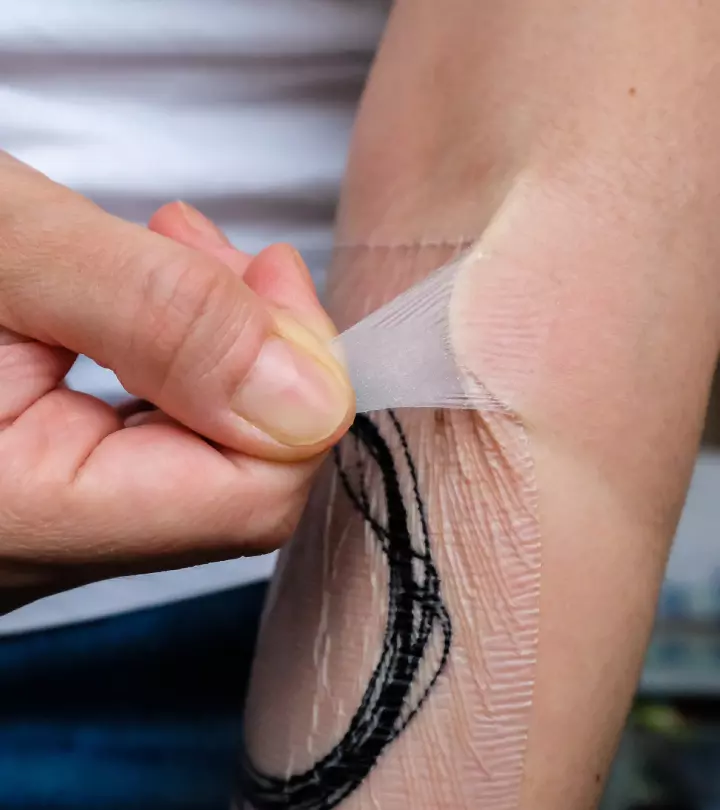
Image: Shutterstock
Tattoo peeling is a natural and integral part of the tattoo healing process. After getting a tattoo, the skin initially goes through certain changes for the first couple of days. When getting a tattoo, the skin is punctured repeatedly and is filled with ink. After the tattooing process, the newly inked skin goes through a regeneration phase as it starts repairing itself. Peeling occurs as the skin is healing the wound created by the tattoo process. This renewal is fairly visible as the outer layer of the tattooed skin starts shedding and peeling away. As the skin peels, it unveils the vivid design, and the intricate details of the tattoo become more prominent. While the sight of skin peeling may raise concerns, it is important to acknowledge this phase as part of the body’s natural healing process and not as a warning sign. During this stage, proper aftercare is truly important along with protection from sun exposure. Keep reading to explore all about tattoo peeling in detail!
In This Article
Why Is My Tattoo Peeling?
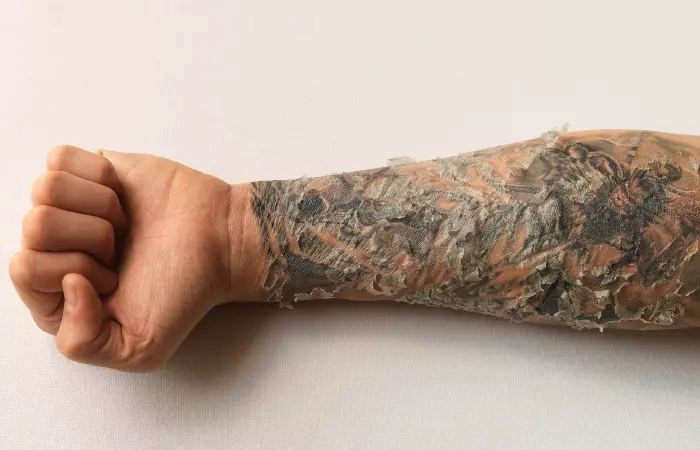
Tattoo peeling is the body’s natural response to skin trauma, as the skin gets injured during the tattooing process. During the session, the tattoo ink is pierced into the top layers of skin to give you a beautiful design, essentially making the newly tattooed skin an open wound. As it begins to heal, it goes into a regeneration phase, and the epidermis layer (outermost skin layer) begins to peel after a few days. This shedding is considered normal and is generally not a cause for concern. As the skin heals, the old dead skin cells come off, leading to tattoo peeling to give way to new skin cells. Don’t worry. Peeling does not mean that your tattoo will fade. Since the tattoo pigments are needled into the skin, aiding proper ink absorption, these new skin cells will show off a vibrant tattoo design.
Jasmine, a beauty blogger, talks about her personal experience with the overall healing process after getting inked. She recounts, “There was a lot of peeling but not much scabbing because I didn’t bleed much during the process. It was around the third week that it was the end of the healing process (i).”
There are some instances when tattoo peeling can be caused by excess sun exposure, tattoo infection, allergic reaction, and even unnecessary picking at the tattoo. But you can avoid this by following the right tattoo aftercare tips recommended by your tattooist or a dermatologist.
But while this stage is crucial, does peeling affect the tattoo design in any way? Let’s understand it in the section below.
Key Takeaways
- Tattoo peeling occurs as the body’s natural response to the tattooing process.
- The peeling stage is characterized by the shedding of the topmost layer and new skin regeneration.
- Tattoo peeling takes place within the first week of getting inked.
- Always keep a peeling tattoo moisturized to avoid dryness, irritation, and inflammation.
Does Peeling Damage The Tattoo Design?
In most cases, tattoo peeling is a natural process that does not affect or damage the tattoo design in any possible way. It signifies the body’s regeneration post-tattooing. However, aggressive scratching or picking at the peeling skin can disrupt the tattoo healing process and affect the tattoo’s vibrancy and longevity.
There may be a risk of dryness that may cause excessive peeling or flaking if you do not follow the proper aftercare process. This negligence, in turn, may leave the tattoo a little faded. If you notice a rash or bumpy skin paired with the tattoo peeling. These may be signs of infection.
While we are aware that tattoo peeling is common and an essential part of the healing process, let’s understand when it actually begins. Scroll down.
When Does A Tattoo Start Peeling?
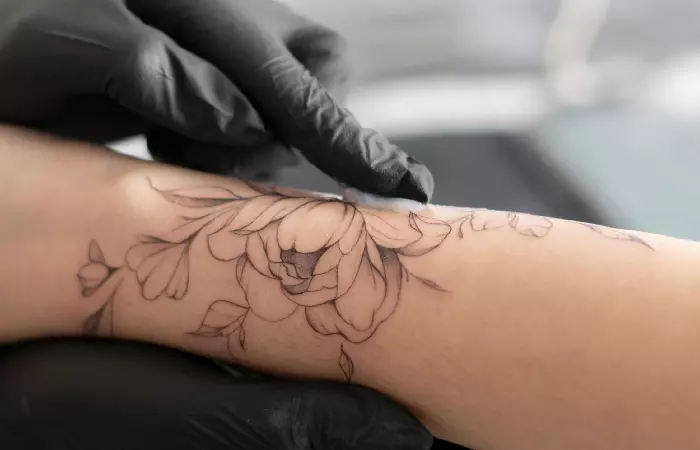
Tattoo peeling normally occurs after the first week of getting tattooed, when the protective film is removed, and the initial healing phase is almost finished. In the second week, you may witness natural scabs forming on the skin that, when dried, peel off on their own. The tattoo may even appear slightly dull due to the dead skin cells that assemble on the tattooed skin. However, once the old skin peels off, the tattoo looks vibrant and beautiful.
 Quick Tip
Quick TipIt is important to understand how a tattoo might look before and after the tattoo peeling process. Continue scrolling to learn about it in detail.
Before And After Tattoo Peeling

After getting freshly inked, your tattoo artist will clean and bandage your tattoo. They will recommend that you leave the bandage on for a few hours or a day. Once you have been given the go-ahead to remove the bandage and begin the aftercare process, your skin will start to regenerate. In the first few days, you may notice redness, slight swelling, and maybe even a little discomfort. As the initial healing finishes, you will notice your skin has started to peel, allowing the new skin to emerge. When your skin peels, you may also experience symptoms like itchiness, dryness, and flaking. Once the tattoo peeling stage is over, you can expect to see a vibrant tattoo with the intricate details more visible.
The tattoo peeling process is natural, and you have to be extra cautious regarding the aftercare once your tattoo starts to peel. Scroll down to learn more about the aftercare methods to follow to keep your newly tattooed skin healthy and prevent dryness.
What To Do When A Tattoo Starts Peeling?
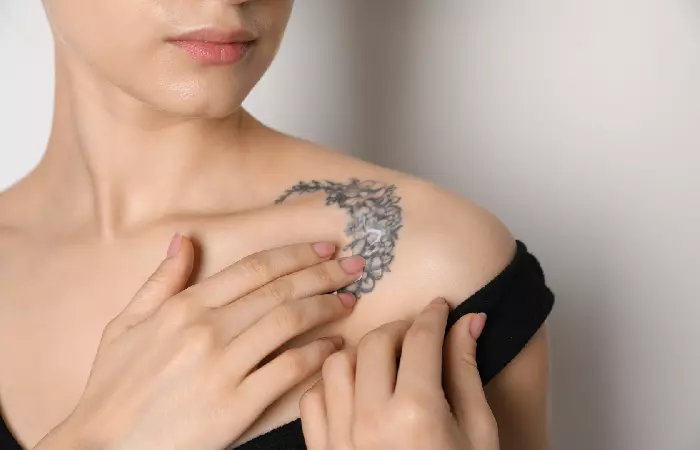
There are certain tips for aftercare that you should follow to keep your tattoo perfect and maintain healthy skin. As you follow these care tips, you will notice your skin healing:
- Diligently stick to your tattoo artist’s aftercare advice, especially around using any recommended ointments or moisturizers. Reapplying them throughout the day helps keep your tattoo moisturized, supporting proper healing and preserving the design.
- Always keep your tattoo clean. Cleanse your freshly inked skin with a mild, fragrance-free soap or cleanser. Remember to be gentle while washing your tattoo.
- Pat dry your tattoo with a soft towel or a clean paper towel. Do not rub the tattooed skin, as this may lead to unhealthy peeling. You can also allow the skin to air dry.
- Avoid over-applying ointments to your skin, as this can make your newly tattooed skin open to infections. Apply only the instructed amount of product.
- Once your skin starts to heal and peel, you may notice scabs. Do not pick at these scabs. Do not try to pull out peeling skin.
- Avoid going out in direct sunlight for the first few days after getting a tattoo. Excessive exposure to the sun may cause unnecessary peeling and may accelerate the fading and aging of the tattoo.
- Always wear sunscreen with an SPF level of 50 or higher. Also, wear sun protection gear such as hats, scarves, and long-sleeved clothes.
- Wear loose clothing rather than well-fitted or tight outfits to avoid unnecessary peeling caused by friction.
 Quick Tip
Quick TipClearly, peeling is a sign of a healing tattoo. But should you be alarmed if your tattoo is not peeling?
What To Do If My Tattoo Is Not Peeling?
If your tattoo is not peeling, it does not necessarily indicate that something is wrong. It varies among individuals depending on their skin type, how quickly their skin, the tattoo ink used, the size of the tattoo, and the aftercare products being used. Smaller tattoos may not peel or flake compared to larger tattoos. Continue to follow the general aftercare tips, and do not attempt to forcefully peel the skin by scratching it, as this may lead to skin infection and skin damage. If you still feel pain and notice redness or inflammation after the first week of getting your tattoo, please consult a dermatologist and your tattoo artist immediately.
The tattoo peeling process is a normal part of your body’s natural healing process and allows you to achieve a stunning masterpiece in return. As the topmost layer of your skin sheds, a freshly inked design is revealed. The tattoo peeling stage is a temporary phase and does not bring any alarming concerns. However, it is important to follow the proper tattoo aftercare tips to ensure optimal healing and the desired outcome. Generally, the peeling should stop within a couple of weeks. However, if it doesn’t and you still notice redness and other symptoms, consult a dermatologist immediately. We hope the information shared in this article has helped you gain some good insights and will guide you well for your next tattoo session.
Frequently Asked Questions
How long does the peeling stage of a tattoo last?
The peeling stage of a tattoo typically lasts for about two weeks. However, it can also depend on the individual’s skin type, the intricacy of the tattoo design, and its size.
Should you wash your tattoo while it’s peeling?
Yes, it is important to wash your tattoo and keep it clean even while it is in its peeling phase. You can use a mild soap and lukewarm water to clean it. Avoid washing your newly inked skin with cold or hot water.
What should I use to moisturize my peeling tattoo?
You should only use tattoo aftercare products suggested by your tattoo artist. But to moisturize your tattoo, you may use a non-fragranced hand lotion or hypoallergenic creams with nourishing ingredients like shea butter, vitamin E oil, and coconut oil. Avoid using ointments during the peeling stage.
Can you rub a peeling tattoo?
It is best to avoid rubbing or scratching the peeling tattoo to ensure the healing process is not disrupted. However, if the itching is unbearable, gently tap on the tattoo to relieve the discomfort.
Why does my tattoo look faded after peeling?
The tattoo peeling process reveals a new layer of skin that can make the tattoo appear lighter. The tattoo may also have low moisture content, which may cause changes in its appearance and make it dull.
How often should I wash my tattoo when it’s peeling?
During the peeling stage, ensure to wash the tattoo regularly, at least twice a day. Then, pat it dry and apply a hydrating moisturizer.
What is the difference between tattoo peeling and scabbing?
Tattoo peeling occurs when the skin’s outermost layer starts shedding as a natural response to the injured skin. Tattoo scabbing involves the formation of crusts over the tattooed skin. The crusts act as a protective barrier and are usually made of dried blood or lymph fluid.
Can I sleep on my tattoo when it’s peeling?
It is recommended not to sleep on the fresh tattoo when it’s peeling and keep the pressure off it. The tattoo needs proper airflow for healing.
Illustration: Tattoo Peeling: Is This Normal And How To Care For It?
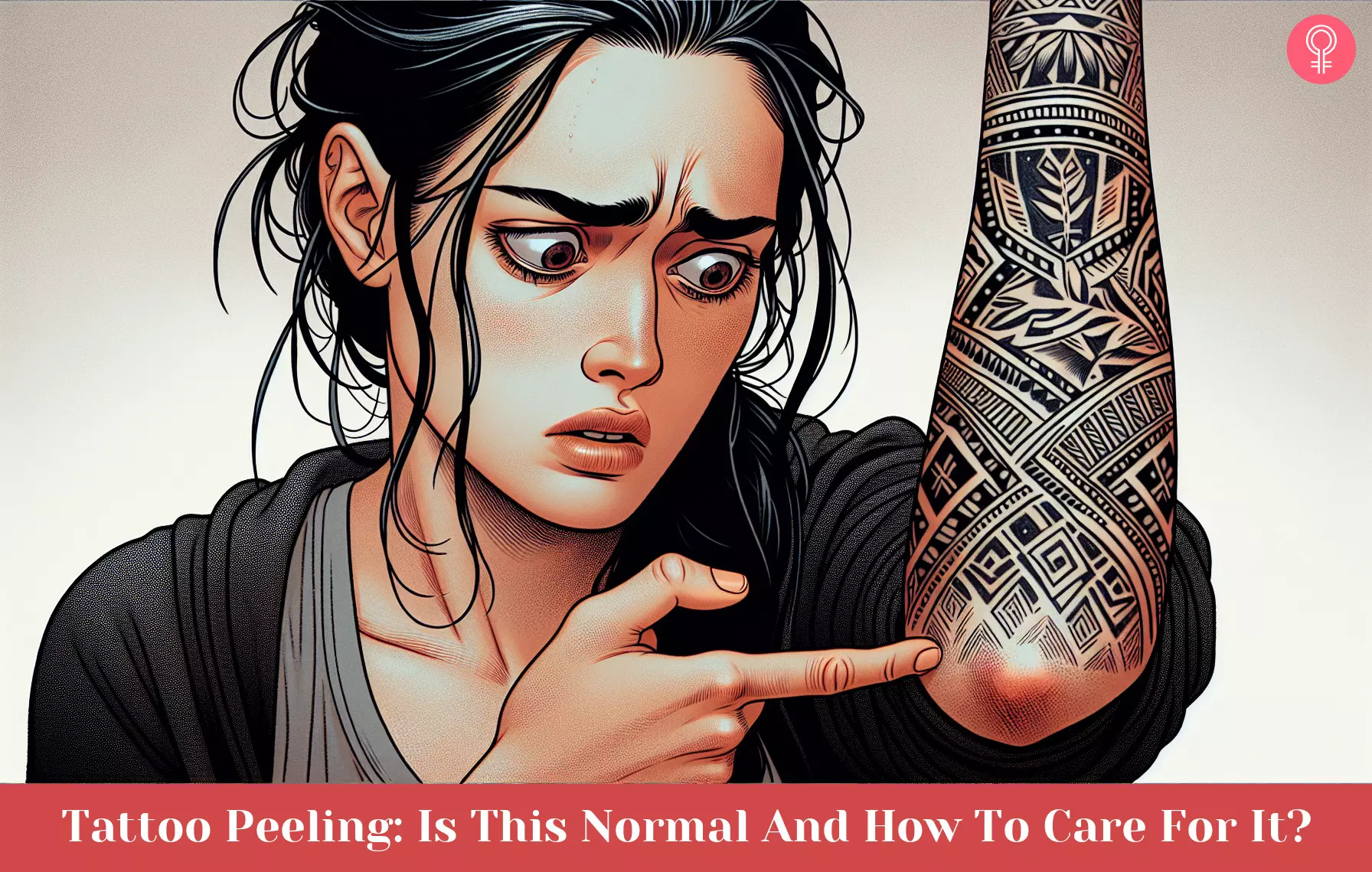
Image: Dall·E/StyleCraze Design Team
Getting inked for the time first and witnessing the tattoo peeling may make you a little concerned and confused. So, check out the video below as it guides you through the healing process and what aftercare steps you should take!
Personal Experience: Source
StyleCraze's articles are interwoven with authentic personal narratives that provide depth and resonance to our content. Below are the sources of the personal accounts referenced in this article.
(i). Tattoo – Q&A with a First Timer – Part 1https://joyousbeautyblog.wordpress.com/2016/05/12/journey-of-my-1st-tattoo-part-1/
Read full bio of Scott Terry
Read full bio of Pahul Nanra
Read full bio of Anjali Sayee
Read full bio of Manjari Uppal







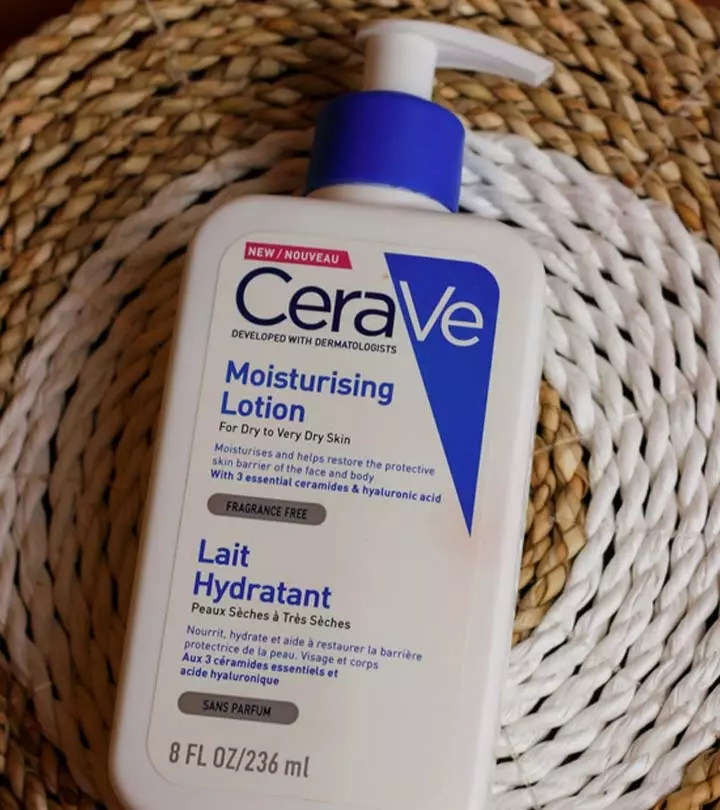
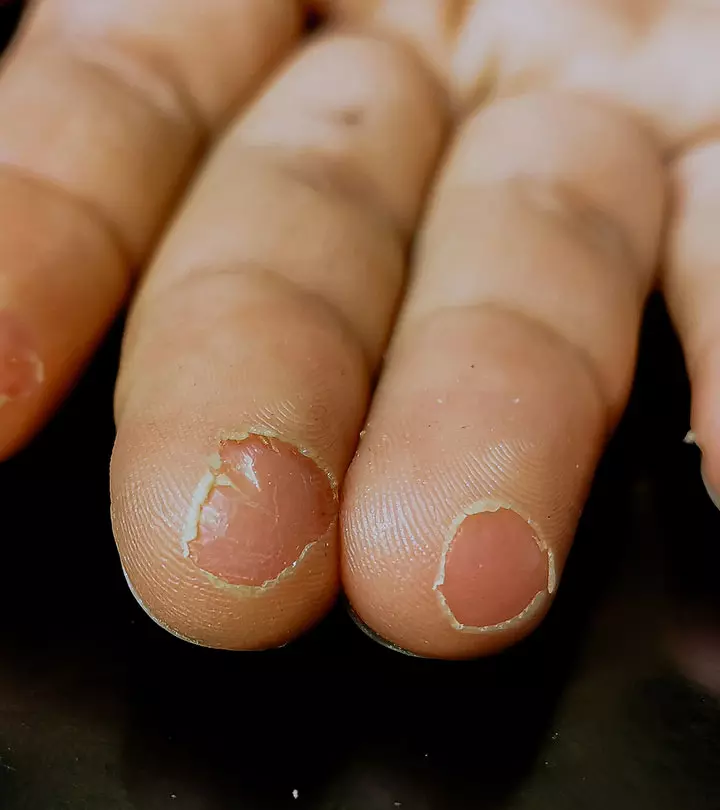
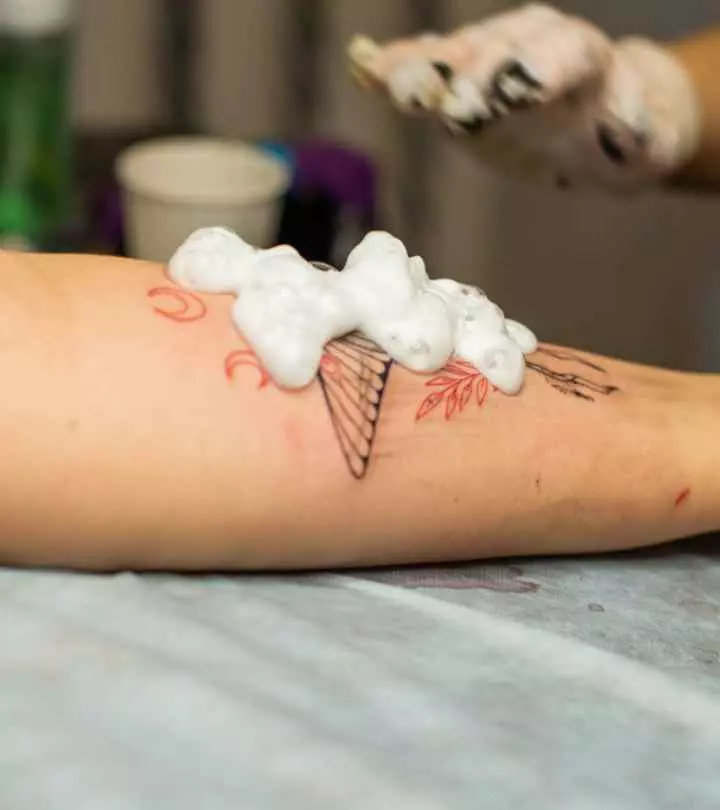
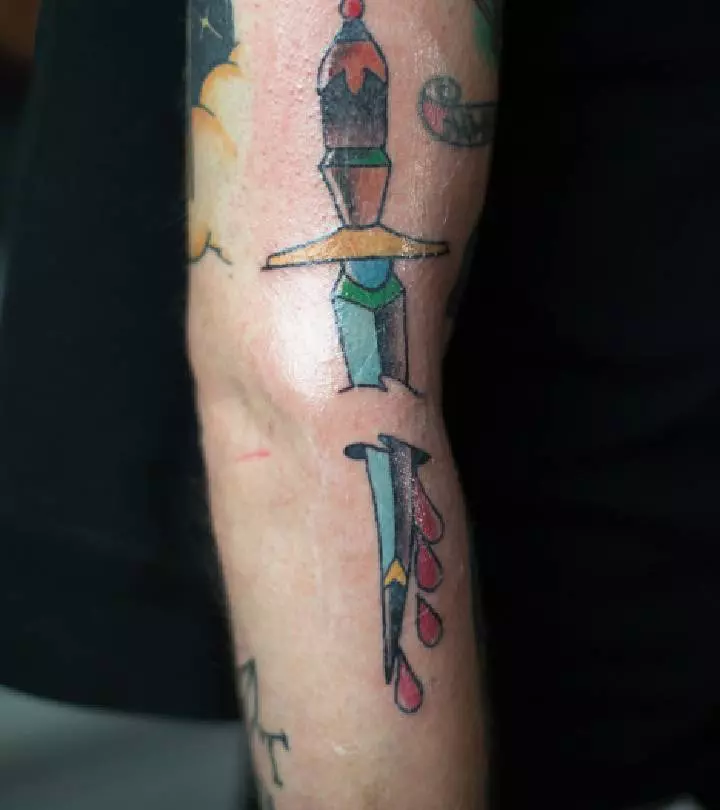



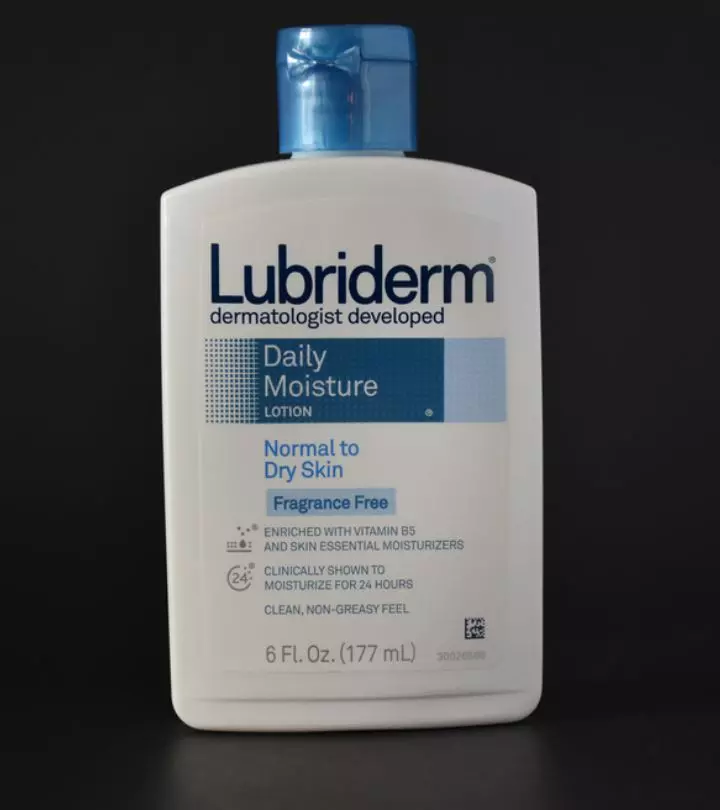


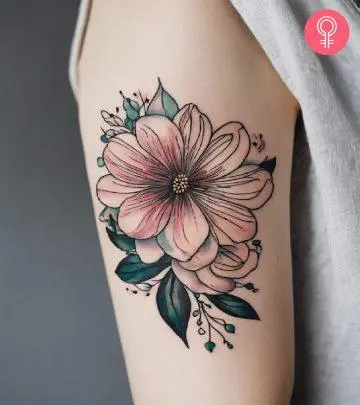

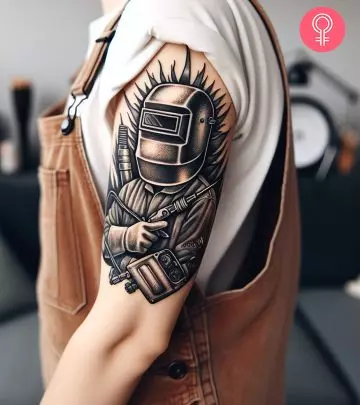
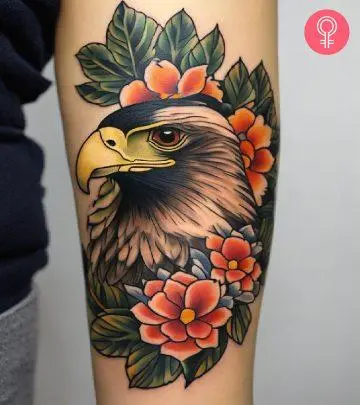
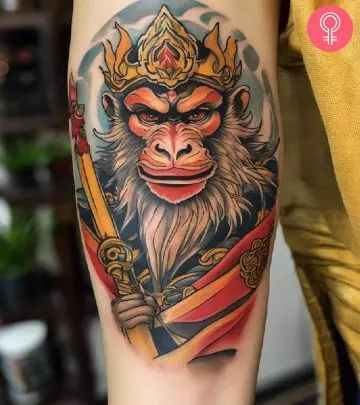
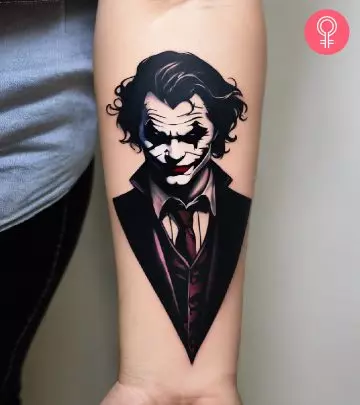
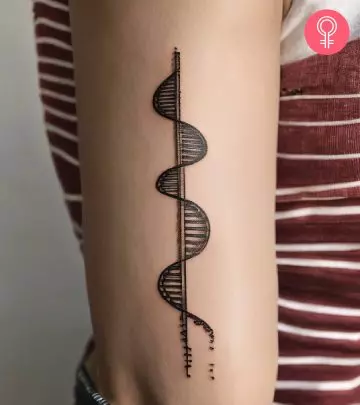
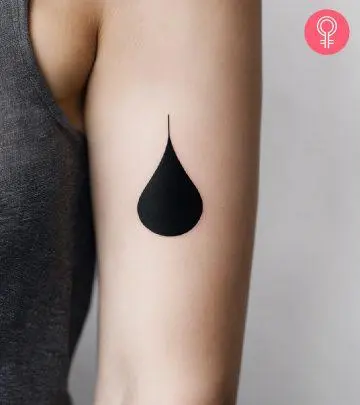

Community Experiences
Join the conversation and become a part of our empowering community! Share your stories, experiences, and insights to connect with other beauty, lifestyle, and health enthusiasts.